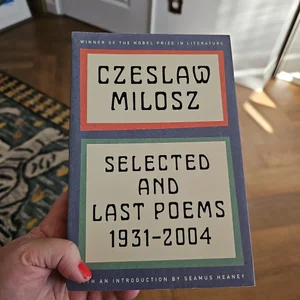
Books Sold
10Copies for Sale
12# of Titles
16Czeslaw Milosz
Czesław Miłosz was a Polish poet, prose writer, translator, and diplomat of Lithuanian origin. Born on June 30, 1911, in Šeteniai, Lithuania (then part of the Russian Empire), he is considered one of the greatest poets of the 20th century. Throughout his career, he explored themes such as the moral and intellectual challenges of the modern world, the tension between individual consciousness and history, and the complexities of Central and Eastern European identity. Miłosz's work was deeply influenced by his personal experiences, including the horrors he witnessed during World War II and his life under communism. He defected from communist Poland and lived in exile in the United States from 1960 until the fall of the Iron Curtain, working as a professor at the University of California, Berkeley. He wrote in Polish, but his works have been translated into many languages. His most famous works include "The Captive Mind," which examines the seductive nature of totalitarianism, and "The Issa Valley," a semi-autobiographical novel. Miłosz was awarded the Nobel Prize in Literature in 1980, an acknowledgment of his significant contribution to world literature. He passed away on August 14, 2004, leaving behind a legacy of rich and reflective poetry and prose.
All titles by Czeslaw Milosz
All
Classics
Poetry
Politics and Political Science
Photography
General Nonfiction

The Captive Mind
1 available
5 sold

A Book of Luminous Things
8 available
2 sold

Letters from Prison and Other Essays
1 available
1 sold

On the Abolition of All Political Parties
1 sold

Selected and Last Poems
1 sold

Selected Poems
1 available

Road-Side Dog

New and Collected Poems
1 available

Facing the River
Page 1 of 2
